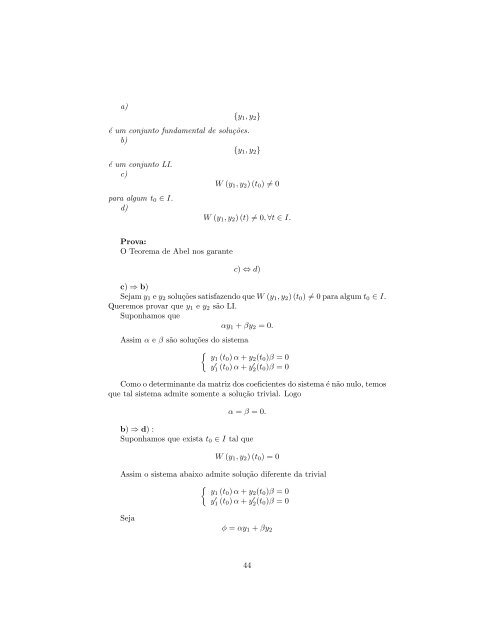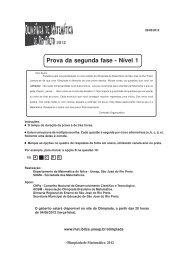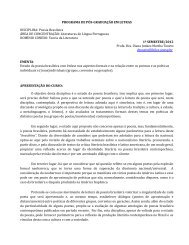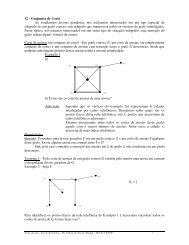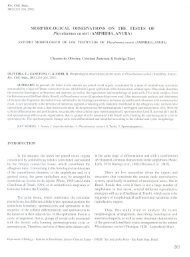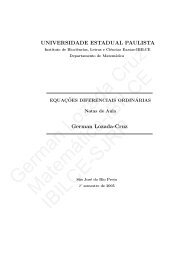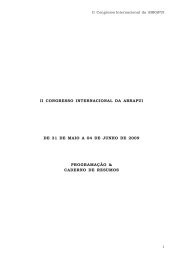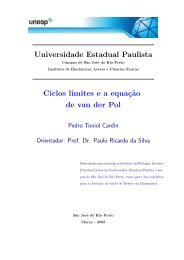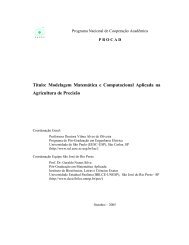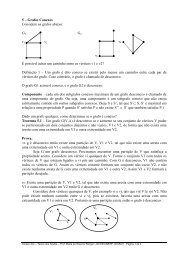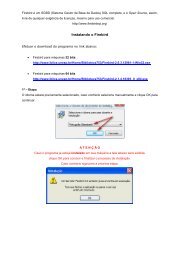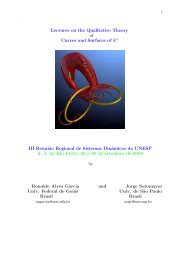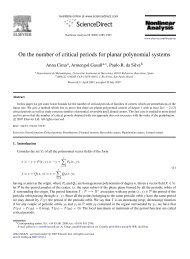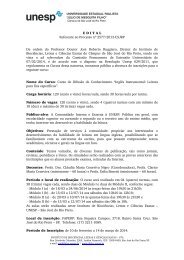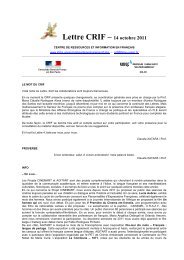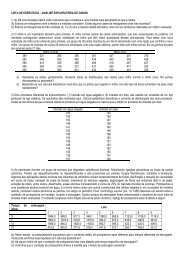Curso de Equações Diferenciais Ordinárias - Unesp
Curso de Equações Diferenciais Ordinárias - Unesp
Curso de Equações Diferenciais Ordinárias - Unesp
You also want an ePaper? Increase the reach of your titles
YUMPU automatically turns print PDFs into web optimized ePapers that Google loves.
a)<br />
{y 1 , y 2 }<br />
é um conjunto fundamental <strong>de</strong> soluções.<br />
b)<br />
{y 1 , y 2 }<br />
é um conjunto LI.<br />
c)<br />
para algum t 0 ∈ I.<br />
d)<br />
W (y 1 , y 2 ) (t 0 ) ≠ 0<br />
W (y 1 , y 2 ) (t) ≠ 0, ∀t ∈ I.<br />
Prova:<br />
O Teorema <strong>de</strong> Abel nos garante<br />
c) ⇔ d)<br />
c) ⇒ b)<br />
Sejam y 1 e y 2 soluções satisfazendo que W (y 1 , y 2 ) (t 0 ) ≠ 0 para algum t 0 ∈ I.<br />
Queremos provar que y 1 e y 2 são LI.<br />
Suponhamos que<br />
αy 1 + βy 2 = 0.<br />
Assim α e β são soluções do sistema<br />
{<br />
y1 (t 0 ) α + y 2 (t 0 )β = 0<br />
y ′ 1 (t 0 ) α + y ′ 2(t 0 )β = 0<br />
Como o <strong>de</strong>terminante da matriz dos coeficientes do sistema é não nulo, temos<br />
que tal sistema admite somente a solução trivial. Logo<br />
α = β = 0.<br />
b) ⇒ d) :<br />
Suponhamos que exista t 0 ∈ I tal que<br />
W (y 1 , y 2 ) (t 0 ) = 0<br />
Assim o sistema abaixo admite solução diferente da trivial<br />
{<br />
y1 (t 0 ) α + y 2 (t 0 )β = 0<br />
y ′ 1 (t 0 ) α + y ′ 2(t 0 )β = 0<br />
Seja<br />
φ = αy 1 + βy 2<br />
44


